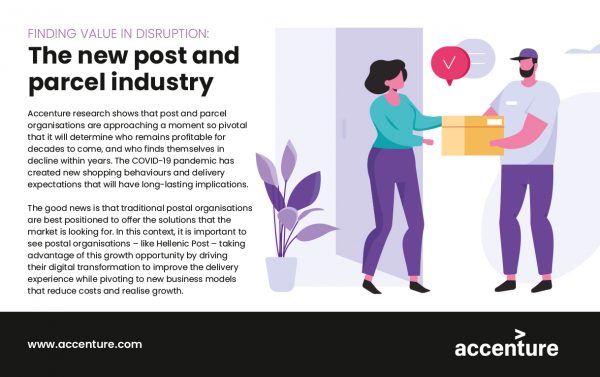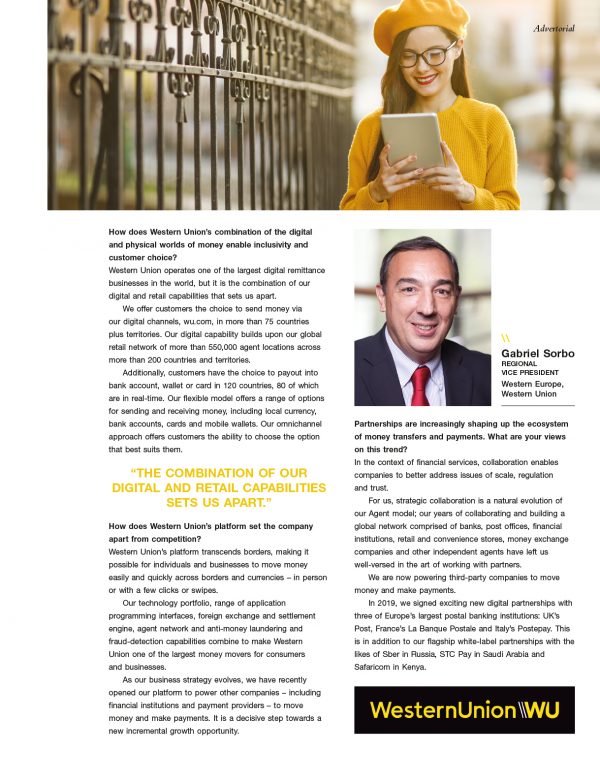The way we communicate is changing and as email, rather than letter sending, becomes the norm and ecommerce continues its exponential rise, the world’s postal services are having to rethink their strategies. Greece’s Hellenic Post (ELTA) is no different.
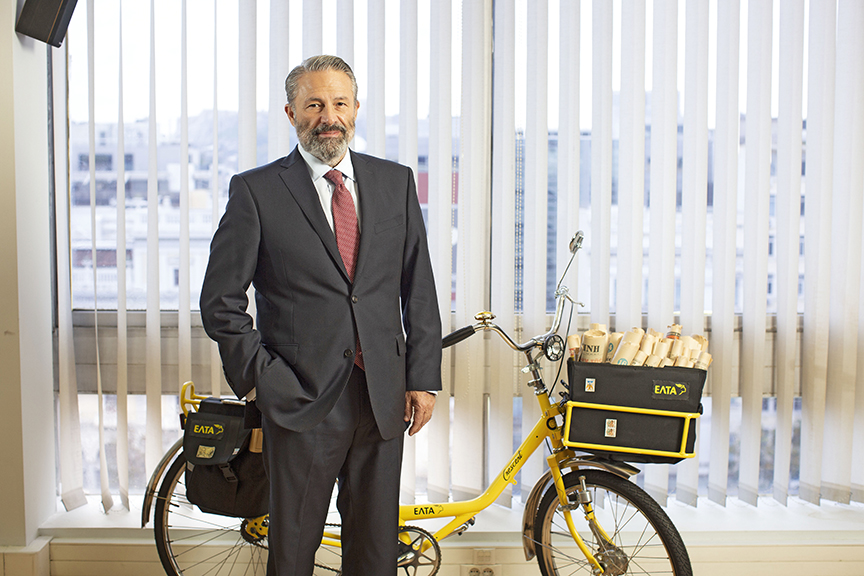
Since George Constantopoulos came on board in 2019, he’s been using years of experience in consulting to develop a transformation program set to restructure and re-energise one of the country’s most historic businesses.
Can you tell us about Hellenic Post as a business and its place in Greece’s history?
The Hellenic Post is the oldest and most recognisable company operating in Greece, and one of the most historic postal services in the world. Founded in 1828 by the first Governor of the new Hellenic state, it’s been consistently serving the public ever since.
Such a historic brand must have gone through a lot of changes over the years…
Yes, the years have certainly taken their toll particularly because we’re part of a regulated industry in such a competitive market. We’ve had to learn to adapt to this new market reality where fewer letters are being sent.
I strongly believe in putting people first.
It’s led us to today’s crossroad, which is how to drive such a traditional business into the future. We’re on the cusp of implementing a transformation program aiming to add value to the business and stimulate growth, and a strategic plan has been formulated to allow for a restructuring of the entire organisation.
Was it the challenge of taking the business into a new era that drew you to the role of CEO?
It’s an interesting question because it is a different industry for me; however, the challenge we face is one I’ve seen before. Hellenic Post’s transformation project is, to a larger degree, about restructuring the organisation and delivering a digital strategy to bring in an influx of new revenue streams.
My consulting background and experience in working with a number of large organisations means I’ve walked others through the implementation of innovative new business models, which is exactly what we’re doing here.
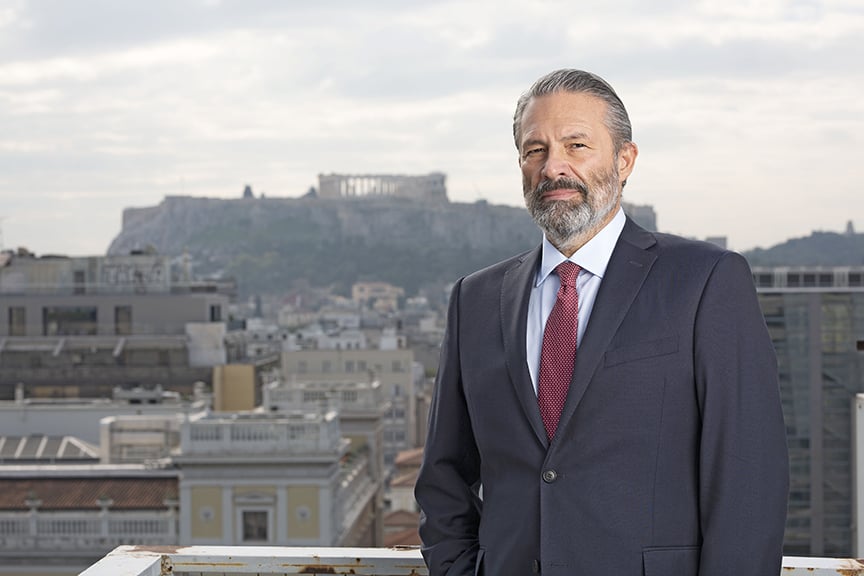
2020 was a difficult year for a number of global businesses. How was it for Hellenic Post?
There’s no doubt that the global health crisis put our company under massive pressure, but at the same time, it presented us with a number of new opportunities. We learned so much because we had to continue operating throughout the lockdown.
I strongly believe in putting people first and we had such a responsibility to our customers as well as to our 7,500 employees. I’m enormously proud of our organisation for everything we accomplished, which includes achieving a zero rate of infections across our entire network.
The postal service plays such an integral role in a community. Did you feel the pressure to keep things moving throughout the country?
Definitely. To give an idea of how much responsibility we have to our customers, you should know that we have the duty of safely delivering pensions to 400,000 senior citizens.
That’s a serious number. Furthermore, considering our country is mountainous and has so many inhabited islands, it’s a challenge to reach every household. I’m gratified that we were able to deliver those pensions throughout the country’s lockdown.
Have you seen a change in the way customers use the postal service? How will the decline in letters challenge the industry?
Traditionally, the postal service has a clear role as the trusted physical communications intermediary between people, businesses and government. At this moment in time, all postal service providers are facing rapid changes from a range of industry trends including ecommerce, globalisation, regulation and innovation.
As our customers become more used to new technologies like sending an email rather than a letter, this role is being seriously challenged. On the other hand, the increase in online orders has seen ecommerce shipments grow exponentially.
While the number of letters being sent is in decline, the growing ecommerce industry is creating new opportunities for postal operators. It’s become imperative for us to jump on the digital bandwagon as fast as we can. And that includes both our operational and customer experience approaches.
So is innovation and technology a big area of focus for you and the business?
Absolutely, everything is changing for us and there are so many opportunities for us as a business. Particularly as we head in the direction of cashless transactions, blending online with offline activities becomes the key to ensuring success. At the moment we are still in the early phases of planning and, because we are part of the public sector, we have to go through the long process of tendering before we can get started on projects.
Have you been able to make a start on anything?
We’ve completed a major consulting phase to devise our digital strategy, which I’m happy to say has been nicely formulated. And we’re currently in the process of launching other tenders so that we can attract, on a global scale, the right people to assist us.
And what will those tenders focus on?
The requirements involve a complete overhaul in digitalisation and automation of the company’s operations and customer experience, with the intention to replace what has now become very old software and archaic infrastructures that barely support what we do.
We have the largest retail network in the country with 1,300 locations, so our core customer-facing applications are essentially the point-of-sale system and the track-and-trace application for business and logistics event management.
Additionally, we plan on launching tenders for new ERP, CRM and HRM platforms, alongside mobile apps, intelligent routing and fleet management, and data management and reporting.
Are there any plans to move into the automation of services?
Yes, there are plans for that. We’re looking at how to automate our parcel sorting centres and distribution networks by using smart equipment and software, thereby implementing a hybrid environment where you’re relying on automation and using people more effectively.
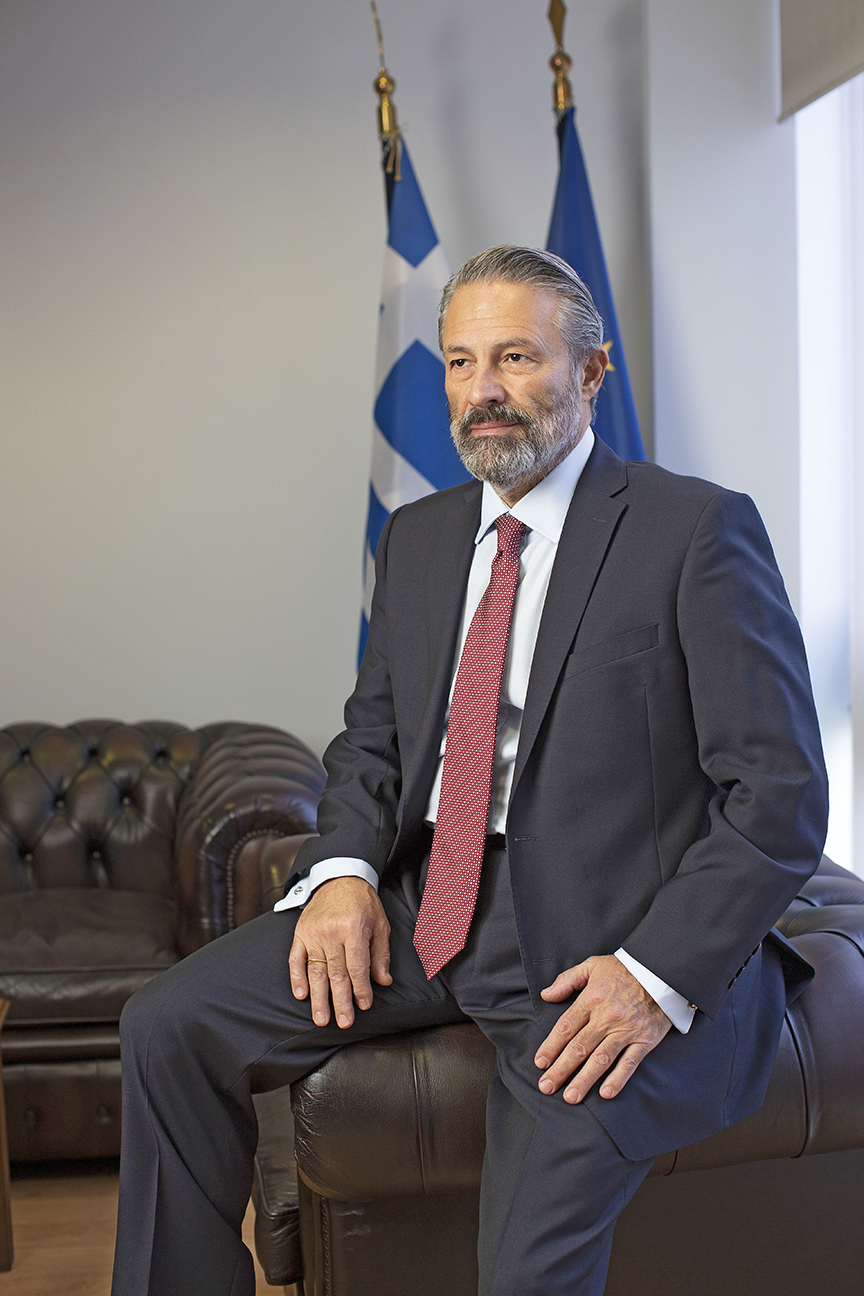
That way you can really work shifts around the clock, which will enable us to further optimise our operational costs. Let me also share with you an innovative digital service named ‘e-stamp’ that we recently launched for our online clients, that provides a fast, secure and flexible experience.
The digital postage stamp can be purchased 24/7 from ELTA’s dedicated website in three easy steps via mobile phone, tablet, laptop or desktop. A 12-digit unique, alphanumeric key is produced on screen. This is then marked by hand on envelopes or parcels that can be dropped off in the local mailbox.
It sounds like there’s a lot of future thinking happening in the business.
We’re constantly seeking new technologies to bring about a better customer experience and the future for us is focused on how we can be more customer centric as we aim to personalise the experience. Another focus for us is those cashless transactions I mentioned earlier.
We provide financial services for a lot of individuals and small companies. Furthermore, since we serve many migrants in our country who want to send money to other parts of the world, we also carry out a considerable amount of cash transfers.
Consequently, as we move towards more and more cashless transactions on a national scale, we’re also looking at how to best engage in payment systems. It’s just another area that Hellenic Post’s digital transformation will allow us to introduce additional value-added services.
How will you approach leading the business into this new future?
I intend on listening to the conversations I have, whether they’re with field workers, administrative staff, partners or our stakeholders. By carefully listening, rather than doing all the talking, you can absorb what’s happening in the business and take action because, at the end of the day, we’re dealing with people here.
Whether it’s the pandemic, restructuring the organisation or delivering pensions and supporting the elderly, dealing with humans is at the centre of everything we do at Hellenic Post and everything we want to continue to do in the future. ELTA’s transformation is the first for a large-scale state-owned enterprise.
We have a lot of ground to cover just to catch up and lay the foundation for the fundamentals, let alone move forward, so as you can understand, we have to introduce change on steroids. Change is the oxygen of growth and we are determined to achieve in the next three years what, in other circumstances, would normally take a decade.
The approach of the restructuring scheme involves breaking the company into its smallest component parts and driving accountability and managerial responsibility as far down into the organisation as possible. Central to this is the cultivation of a new corporate culture, guiding the leadership team towards a unified vision.
An evolution from a state-controlled dinosaur into a new organisation; competitive and savvy in business and services and one that will also provide its employees with a dynamic environment of productivity, development and meritocracy.
Proudly supported by:
